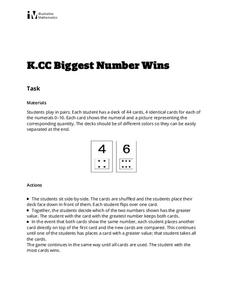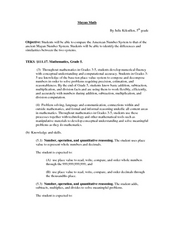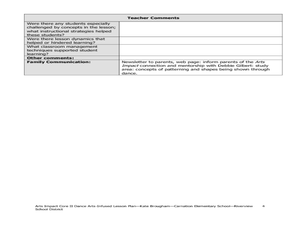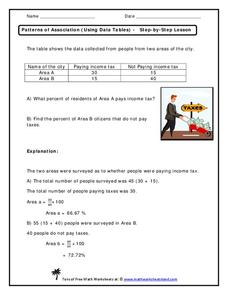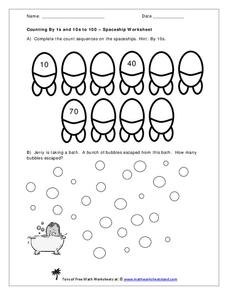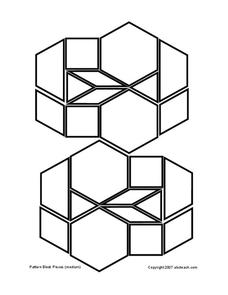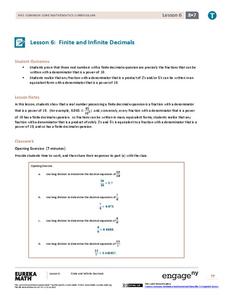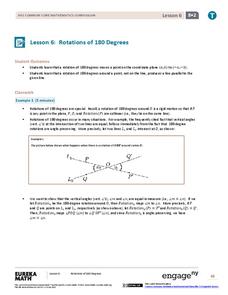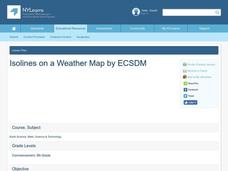Curated OER
Identifying the Patterns
Apple, banana, apple, banana...what's next? Youngsters practice recognizing patterns using these object sequences. For the first four patterns, they examine the start of a set, find the pattern, and complete the subsequent drawings in...
Illustrative Mathematics
Biggest Number Wins
Engage your mathematicians with this simple number-quantity game. Working in pairs, using two decks of 44 cards numbered 0-10 with corresponding sets of objects or images, young learners will each flip a card and decide which number is...
Curated OER
Investigation - Adrienne's Pattern Block Angles
Fifth graders investigate possible solutions to a word problem. They explore properties of polygons and right angles. Students demonstrate proper angle measurement. Students discover patterns.
Curated OER
Math Practice-Grade 2
In this grade 2 math practice worksheet, students complete a set of 24 problems using a variety of grade 2 concepts. Answers are included.
Curated OER
Math-Geometry: Area and Perimeter
Upper graders measure the area and perimeter of several items. In this area and perimeter lesson plan, learners engage in measuring area and perimeter in several scenarios. Full-group instruction requires students to listen to...
Curated OER
Mayan Math
Fifth graders investigate the Maya's as mathematicians. In this Mayan math lessons, 5th graders work with the ancient Mayan numbering system by comparing it to the American Number System. They tell the differences and similarities...
Curated OER
Dancing Polygons and Non-Polygons with Patterns
Second graders study movements. In this dance lesson plan, 2nd graders draw patterns selecting one to represent through movement with their body.
Math Worksheets Land
Patterns of Association (Using Data Tables) - Independent Practice Worksheet
Here is a worksheet that belongs in a four-part resource that has learners practice using data tables to calculate percentages. The page has ten problems with different data tables asking to find different percents.
Curated OER
Talking About Your Name in Math Terms
Add imagination and creativity to your math lesson. Young mathematicians investigate ways to express their names in mathematical terms. For instance, they can count the number of letters, analyze the geometric shapes of the letters, or...
Curated OER
Arts Impact and Math
Third graders incorporate math into dancing. In this algebra lesson, 3rd graders identify different shapes and patterns using dance movements. They relate the different creations to polygons as they incorporate the use of stretchy bands...
Math Worksheets Land
Patterns of Association (Using Data Tables) - Step-by-Step Lesson
This worksheet belongs to a four-part resource that gathers information from data tables to calculate percentages. The page introduces one problem and shares an explanation to the answer.
Curated OER
Linear Inequalities in One and Two Variables: Rays and Half Planes
Define rays and half planes, including the concepts of boundary lines and prerequisite knowledge of coordinate planes. Given linear inequalities in one and two variables, your class will compare the differences. They will also graph...
DK Publishing
Learning 1 - Write the Number
Begin your study of single-digit numbers with this activity on the number one. Young counters first trace and write the digit several times. Next, they practice counting by recording how many objects are in each image (always one)....
Curated OER
Ten More or Ten Less
Adding and subtracting 10 is easy once you understand the tricks! Learners first write numbers that are ten more than two double-digit numbers. Then, they find numbers ten less than two other double-digit numbers. An explanation on the...
Curated OER
Counting Practice
Young counters practice their skills in these two visual problems. First, they examine a number sequence beginning at 10 with a few filled in. They must count by 10s to fill in the rest of the pattern. Next, learners count the bubbles...
Curated OER
Counting by 1s Puzzle Worksheet
This dog is apparently quite upset that he is separated from his bone; can your learners use their counting skills to guide him back to it? The hundreds chart just took a fun twist! Scholars start at one on the bottom of the chart, and...
Curated OER
Pattern Block Pieces
In this Pattern Block Pieces worksheet, students fit pattern blocks into a given pattern block design. The design includes two angles of the same shaped, one flipped upside down.
Curated OER
Perfect Patterns
In this math worksheet, learners complete 5 patterns. Students are given directions from number cartoons. For example, "Start on 21 and take away 2."
Curated OER
Sunshine Math- 3
In this problem solving worksheet, students complete 8 problems in which real life math applications are used. Included are questions pertaining to number sentences, expanded form, patterns and sequences, perimeter and probability.
Computer Science Unplugged
Count the Dots – Binary Numbers
Did you know you can send a message using only zeroes and ones? This interactive resource presents an introduction to binary numbers. Through code cards, pupils learn to convert binary numbers to decimal numbers.
EngageNY
Finite and Infinite Decimals
Explore the patterns of fractions that produce finite and infinite decimals. The sixth lesson of the series asks learners to determine a similar feature of fractions that produce finite decimals. Using the patterns, pupils create...
EngageNY
Rotations of 180 Degrees
What happens when rotating an image 180 degrees? The sixth lesson in the series of 18 takes a look at this question. Learners discover the pattern associated with 180-degree rotations. They then use transparency paper to perform the...
Curated OER
Isolines on a Weather Map
Ninth graders recognize isolines on a weather map and draw isolines based on temperature data on a weather map. They draw isotherms on a weather map to identify temperature patterns.
Curated OER
Multiples of 6 #2
Count by six with these helpful activities. After completing number sequences and multiplication problems from the six times table, third graders solve problems that are written out at the bottom of the page. An excellent way to work on...



